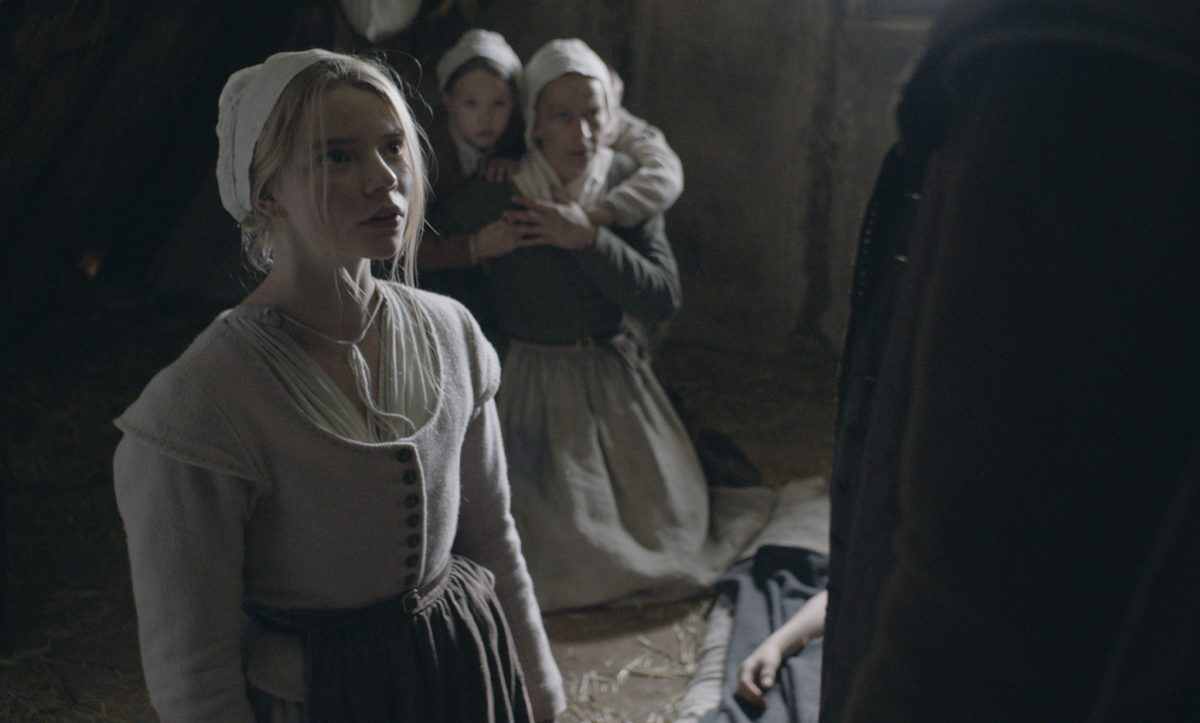
The Witch comes this close to being a brilliant examination of how religious hysteria, superstition, sexual panic, and isolation all set the stage for the Salem Witch Trials. And I suppose a very generous interpretation of the film could still see it that way. But more accurately, director Robert Eggers—in a promising debut—turns his creepy and evocative “New England folktale” into a story about, well, an actual witch.
It’s the late 1600s and William (Ralph Ineson) has just been banished from a small settler’s town for possibly being too devout. So he takes his family—including stern wife Katherine (Kate Dickie) and fresh-faced teenage daughter Thomasin (Anya Taylor-Joy)—into the woods. They pray to the heavens together as a family, on bended knee, and Thomasin guiltily confesses her (minor, teenage) sins, fearing she’ll go to hell. Meanwhile, her younger brother Caleb (solemn, freckle-faced Harvey Scrimshaw) keeps stealing unbidden glances at his sister’s cleavage and the rambunctious twins (Ellie Grainger and Lucas Dawson) run around playing with a black goat, ominously named Black Phillip. One morning, Thomasin is playing peek-a-boo with the family’s new baby, Samuel—he chortles happily each time his big sister covers her eyes—and then, in an instant, he is gone. Did a wolf take Samuel or something more. . .demonic? Instead of teasing us with this question, The Witch goes all in—showing us a naked and shriveled woman’s body performing some sort of satanic ritual on the baby. (It’s not quite as horrifying as it sounds; in this, as in most things, Eggers shows restraint.) Katherine goes into deep mourning, not just for the death of her son, but the horror that he might be going to hell—he wasn’t baptized. She focuses her anger on Thomasin, the last to see Samuel alive. From there, more and more horrible and inexplicable (to them) things happen to the family—as I’m certain, many horrible, inexplicable things did happen to vulnerable settlers. Except in this case, it’s all explained. It’s the witch, you see! The witch did it all!
My frustration with the film’s literal-mindedness notwithstanding, The Witch has much to recommend. Eggers wonderfully recreates this family’s isolated rural home and all the period details, from the spartan clothing, to Williams’s Christ-like beard, to the thick (sometimes indecipherable) English accents, adds to the uncanny sense of reality. As horror films go, the film is more slow burn than an edge-of-your-seat thriller, but it builds steadily to its dreadful and earned conclusion. The Witch is an undeniable achievement, although I feel a bit strange recommending a film whose implicit message is, “Those Salem witch burners? They were really onto something!”
